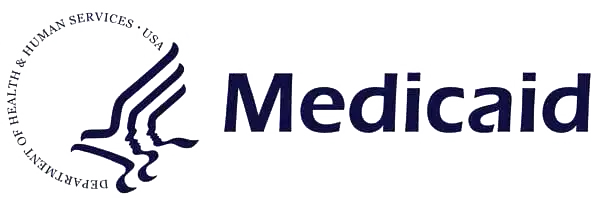PTSD Treatment Solutions
PTSD is not necessarily caused by an incident itself, but by a person’s perception of an incident that activates emotional responses, which are harmful to how we interact with our environment.
Start Today!
Availability
In-person or via telehealth
In-person or via telehealth, depending on therapist availability.
Booking
1–2 weeks
Appointments can usually be scheduled within 1–2 weeks, with some providers offering sooner for urgent needs.
Duration
45-60 minutes
Sessions typically
last 45–60 minutes.
How Can PTSD Treatment Solutions Improve Your Life?

Alleviates PTSD Symptoms: These treatments directly target and reduce the debilitating symptoms of PTSD, such as flashbacks, nightmares, anxiety, and avoidance behaviors.

Processes Traumatic Experiences: By utilizing reprocessing techniques, therapy helps individuals to effectively confront and integrate traumatic memories, reducing their emotional power.

Improves Daily Functioning: As symptoms decrease and trauma is processed, individuals experience improved emotional regulation, better relationships, and an enhanced ability to engage positively with their lives and environment.
Where Can I Take This Treatment and How?
PTSD Treatment Solutions is available at multiple convenient locations, including our Naples, Fort Myers, Tampa, and Southwest Florida (SWFL) offices.
Not located near one of our offices or prefer meeting remotely? We also offer telehealth sessions to anyone located anywhere in Florida, so you can access support from the comfort of your home.
Ready to take the next step? Call us at 239-537-9646 or Fill out our Scheduling Form to get started today.
- (239) 688-2781
-
12811 Kenwood Lane
Fort Myers, FL 33907
Suite 213: Therapy
Suite 201: Psychiatry
- (239) 365-2258
-
2345 Stanford Ct.
Naples, FL 34112
Suite 602: Check-In
We accept insurance
We accept major commercial insurance providers and Medicaid.















Frequently Asked Questions (FAQ) about PTSD Treatment Solutions
What is Post-Traumatic Stress Disorder (PTSD)?
PTSD is a mental health condition that can develop after experiencing or witnessing a traumatic event, leading to symptoms such as flashbacks, severe anxiety, and uncontrollable thoughts about the event.
Who provides PTSD Treatment Solutions?
PTSD treatment is provided by mental health professionals with specialized training in trauma care. Including:
- Mental Health Counselors
- Clinical Social Workers
- Marriage and Family Therapists
- Psychologists (PhD or PsyD)
- Psychiatrists and psychiatric nurses. Typically, this type of therapy is not provided, or it is limited. Their focus is to treat with medications.
Many are trained in evidence-based approaches such as EMDR (Eye Movement Desensitization and Reprocessing), Cognitive Processing Therapy (CPT), Prolonged Exposure Therapy (PE), Accelerated Resolution Therapy, and Traumatic Incident Reduction.
What are effective treatment options for PTSD?
Effective treatments for PTSD often involve reprocessing techniques:
– Eye Movement Desensitization and Reprocessing (EMDR): A therapy that uses guided eye movements to help process and integrate traumatic memories.
– Prolonged Exposure Therapy: Involves repeated, detailed imagining or confronting of trauma-related situations to reduce the power they hold over the individual.
– Traumatic Incident Reduction (TIR): A structured approach that enables individuals to confront and resolve traumatic memories systematically.
These methods aim to help individuals process traumatic experiences and alleviate PTSD symptoms.
What conditions can PTSD treatment address?
- Flashbacks or intrusive memories
- Nightmares or sleep disturbances
- Hypervigilance or being easily startled
- Avoidance of people, places, or reminders of trauma
- Emotional numbness or disconnection
- Anxiety, depression, or panic
- Anger outbursts or irritability
- Guilt, shame, or self-blame
- It also supports healing from various types of trauma such as combat experiences, childhood abuse, sexual assault, car accidents, medical trauma, or witnessing violence.
How can PTSD treatment improve my life?
- Regain a sense of safety and control
- Process and release the emotional weight of trauma
- Reduce distressing symptoms like flashbacks and anxiety
- Improve sleep, concentration, and emotional balance
- Strengthen relationships and rebuild trust
- Feel more connected to yourself and your surroundings
- Healing from PTSD doesn’t mean forgetting what happened—it means the trauma no longer controls how you live.
What should I expect during the initial consultation?
During the initial consultation, you’ll discuss your experiences and symptoms with a therapist. This helps in formulating a personalized treatment plan tailored to your unique situation.
Are these therapies suitable for everyone with PTSD?
While many individuals benefit from these therapies, it’s essential to have a thorough assessment to determine the most suitable treatment based on individual circumstances and the nature of the trauma experienced.
How many sessions are typically needed?
- The number of sessions depends on the severity and duration of the trauma, your goals, and the type of treatment used.
- Some evidence-based therapies for PTSD, like Cognitive Processing Therapy or EMDR, may be effective in 8–16 sessions.
- Complex or long-term trauma may require longer-term support.
- Your therapist will work with you to create a treatment plan that fits your needs.
How can I begin treatment for PTSD?
Getting started is simple. Just complete our Scheduling Form or give us a call at 239-537-9646.
Our team will match you with a therapist who specializes in PTSD and guide you through the process of scheduling your first appointment.
We’re here to support you every step of the way.
